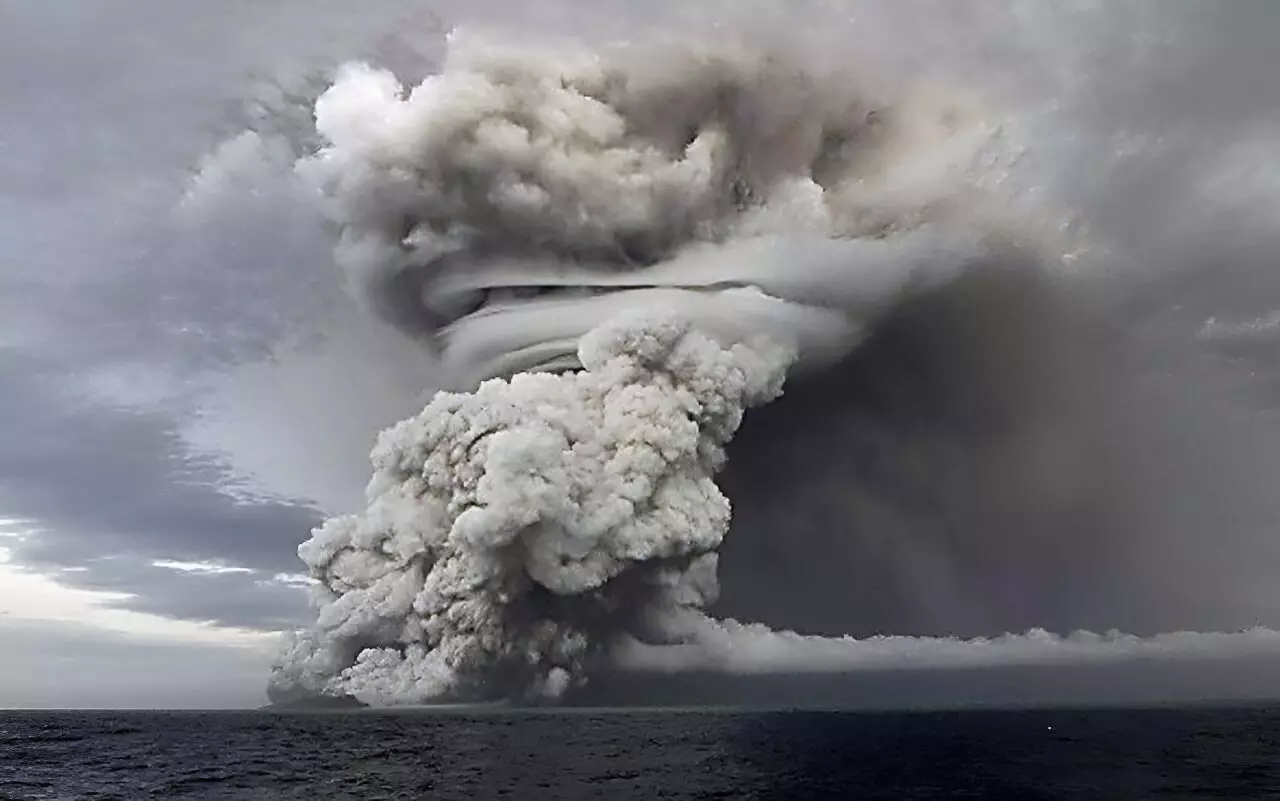The eruption of the Hunga Tonga volcano in 2022 sparked curiosity among scientists, including Dr. Andrew Dessler from Texas A&M University. The collaborative research team led by Dr. Dessler delves into the climate impact of this unique event, challenging existing assumptions and shedding light on the unexpected consequences of the eruption.
Historically, major volcanic eruptions such as Tambora in 1815 and Mt. Pinatubo in 1991 have been known to cool the Earth’s climate by releasing aerosols into the atmosphere. However, the Hunga Tonga eruption presented a different scenario. Being a submarine volcano, it injected a substantial amount of water vapor into the stratosphere, increasing the total water content by about 10%. This introduced a new element into the equation, as water vapor is a powerful greenhouse gas that can potentially influence global temperatures.
The team’s research findings, published in the Journal of Geophysical Research: Atmospheres, revealed that contrary to initial speculation, the eruption actually contributed to cooling the Earth. By analyzing satellite data observations of aerosols and water vapor, the team estimated the energy balance of the Earth’s climate system. The results indicated that more energy left the climate system than entered it, resulting in a slight cooling effect. This challenges the notion that the extreme warmth in 2023 and 2024 was solely attributed to the volcanic eruption.
Dr. Dessler emphasizes the significance of the research findings in understanding the primary drivers of climate change. By ruling out the volcanic eruption as a major factor in recent warming, the study underlines the role of human-induced greenhouse gas emissions in shaping the Earth’s climate. This serves as a reminder of the ongoing debate and misinformation surrounding the causes of global warming, highlighting the need for greater awareness and action.
The study underscores the importance of continuous investment in satellite-based measurements to monitor changes in the Earth’s atmosphere. Dr. Schoeberl emphasizes the critical role played by NOAA and NASA in providing valuable data on stratospheric conditions. However, there is a need for caution regarding the potential decline in stratospheric data availability, as some essential instruments are not being replaced.
While the research provides valuable insights, it also raises new questions about the Hunga Tonga eruption. The low levels of sulfur dioxide produced and the minimal impact on the 2023 ozone hole pose challenges for scientists. The persistence of water vapor in the stratosphere beyond model predictions suggests gaps in our understanding of atmospheric circulation processes. As researchers continue to explore these unresolved issues, there is a growing need for precise data and ongoing research to address the complexities of climate change.
The impact of the Hunga Tonga volcano eruption on climate change offers a unique perspective on the interconnectedness of natural events and human-induced factors. By unraveling the complexities of this event, researchers are paving the way for a deeper understanding of our changing climate and the urgent need for collective action to mitigate its effects.


Leave a Reply